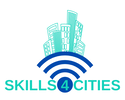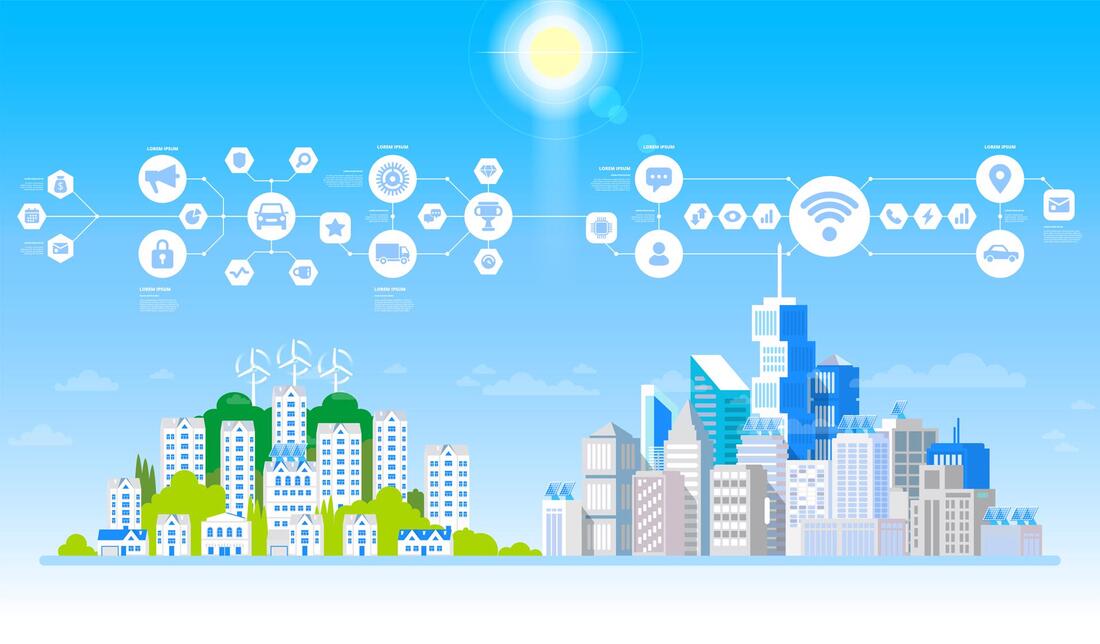|
Smart Cities are known to combine the use of cross-cutting and innovative technologies (ICT but not only) to improve the provision of urban-based services to citizens in a more efficient way if compared to the traditional methods employed so far. In the age of the CoVid-19 pandemic, where distances have represented the first line of defense against the increasing degree of contagion from this virus, smart city project managers have had to face a new conundrum: how can cities continue to function when movements are being limited for health-related reasons? Indeed, different waves of lockdown have affected Europe as a whole, to different extent but with a halt to the freedom of movement as being a common factor to all countries in Europe and beyond. To this end, different cities have started to reimagine their urban environments as micro-clusters that can provide whatever is needed to citizens within the span of a few minutes. Usually, limitations have been imposed on short distances or on the borders of the single municipality: for this reason, the maximum amount of time employed by people, on foot or by bike, can be calculated in just a few minutes – or just one, even. This was the challenge launched by the Swedish national innovation body Vinnova and design think tank ArkDes. The idea is to combine a participatory approach to urban policy planning through the involvement of local citizens and the implementation of innovative solutions, also technology based. It represents a good example of cooperation between the idea of smart city project managers trying to implement on a small scale while taking into consideration during all phases of development both the needs and the ultimate goal of the project – that is, to enable citizens to enjoy all cities’ services within minutes from their residence.[1] This approach to innovation and smartness can be considered to take place at the neighborhood level, and it is fair to define them as smart neighborhood. Furthermore, Sweden is not the only example in this category. To different extent in terms of time employed, but also Barcelona (the “superblock”), Paris (“15-minutes city”[2]) and other cities have been working on this kind of solutions. Then, what exactly are the measures that are being put in place to allow citizens to move less but to actually experience and enjoy more their city at the neighborhood level? A first aspect that felt like needed rethinking was the space used by streets. With the progressive use of nature-based solution, developed according to the needs identified by the local residents, neighborhoods have started designing new structures that can help citizens enjoy more their local areas rather than having to move further away from their home. The same goes for similar green initiatives, like urban gardens – addressing both community-building and food supply issues (as in Los Angeles[3]). Other digital solutions are the widespread of bike sharing technologies, with cities’ sidewalks flooded with such opportunities, or cashless transactions[4]. The goal of this neighborhood-based solutions is to prove that smaller scale solutions for smarter cities are not only possible, but advisable in terms of practical benefits, governance and lower costs. Author Antonio Gennarelli @IDEC RESOURCES [1] ArkDes website. Accessible here: https://arkdes.se/arkdes-play/nu-flyttar-streetmoves-fran-stockholm/. See also: O’ Sullivan, Feargus. Make Way for the “One-Minute City”. Accessible here: https://www.bloomberg.com/news/features/2021-01-05/a-tiny-twist-on-street-design-the-one-minute-city [2] Yeung, Peter. How ’15-minute cities’ will change the way we socialise’. Accessible here: https://www.bbc.com/worklife/article/20201214-how-15-minute-cities-will-change-the-way-we-socialise [3] Berg, Nate. An illegal curbside garden flourishes in L.A. Accessible here: https://www.bloomberg.com/news/articles/2012-04-10/an-illegal-curbside-garden-flourishes-in-l-a [4] Moreno, C. et al. Introducing the “15-Minute City”: Sustainability, Resilience and Place Identity in Future Post-Pandemic Cities. Smart Cities 4 (1), 93-111, 2021. Accessible here: https://www.mdpi.com/2624-6511/4/1/6 |
AuthorSkills4Cities Archives
February 2023
Categories
All
|
|
The Smart Skills for Smarter Cities [Skills4Cities] Project No. 2020-1-BG01-KA202-079071 has been co-funded by the Erasmus+ Programme of the European Union.
This website reflects the views only of the author, and the European Commission cannot be held responsible for any use which may be made of the information contained therein |
SKILLS4CITIES |
SUPPORT |
Copyright ®2021 SKILLS4CITIES. All rights reserved.


 RSS Feed
RSS Feed
